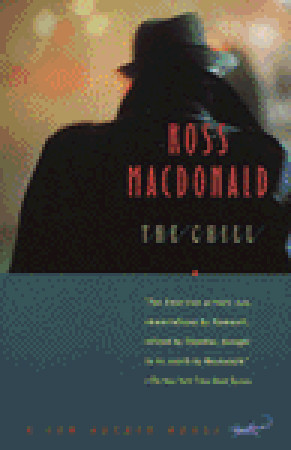What do you think?
Rate this book


288 pages, Paperback
First published January 1, 1964




"You look tired, Lew. But you do exist."
Footsteps approached from the direction of the main house. A big man in an alligator coat emerged from the fog, his bald head gleaming in the light from the doorway. He greeted Bradshaw warmly:
"Hello, Roy. I enjoyed your speech, what I heard of it. You'll elevate us the Athens of the West. Unfortunately a patient dragged me out in the middle of it. She wanted to know if it was safe for her to see a Tennessee Williams movie all by herself. She really wanted me to go along with her and protect her from bad thoughts". He turned to me. "Mr. Archer? I'm Dr. Godwin."
No spoilers.
Dr. Godwin is just a son of a bitch.
Like most analysts.
Only he seems intent on directing his patients to follow a script of his own making.
We drove toward Reno, a city where nothing good has ever happened to me, but I kept hoping.
So many suspects.
I guessed wrong every time I thought I had a handle on the plot.
I was wrong every time.
When the culprit is revealed in the last 15 or so pages, I was stunned.
It was just too sick.
Every character in this novel is a mental case but nothing prepares the reader for the Big Reveal.
She explained about all the brilliant ideas was always hatching. The one I liked best was a plan for a condensed version of the Bible, with all of the offensive passages removed, for family reading."
"I could tell you things about that girl that would curl your hair."'The Chill' easily meets requirements.
"Go ahead. I've always wanted curly hair."
I pulled on my trousers and went to the door in my bare feet. She pressed in past me as if there was a storm at her back. Her garish blonde hair was windblown. She took hold of my hands with both of her clammy ones.